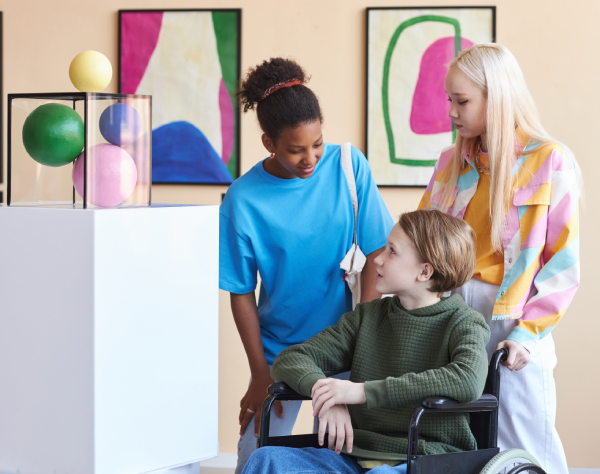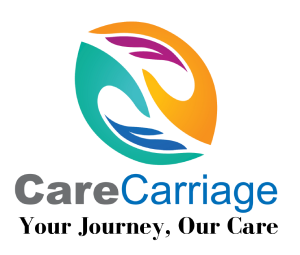
Participate in Community
The “Participate in Community” service under the NDIS (National Disability Insurance Scheme) is designed to help participants engage in social, recreational, and community-based activities. The goal of this service is to promote inclusion, socialization, and a sense of belonging, enabling participants to lead more active and fulfilling lives.
Here’s what is typically included in the “Participate in Community” service:
1) Social and Recreational Activities
- Engagement in Social Groups : Connecting participants with local clubs, groups, or social networks to promote friendships and community involvement.
- Group Outings and Activities: Participating in group activities like community events, outings, and sports activities to develop social skills and create bonds with others.
- Recreational Programs: Access to local recreational programs such as art classes, fitness activities, music lessons, or other hobbies of interest.
2) Sports and Fitness Participation
- Sports Programs: Encouraging involvement in local sports or physical activities like swimming, walking groups, or adaptive sports.
- Fitness Support: Assistance with participating in fitness activities, including gym access or working with personal trainers or sports coaches who cater to individual needs.
- Physical Health Activities: Engaging in activities that promote health and well-being, such as yoga, dance classes, or fitness challenges.
3) Volunteering and Community Service
- Volunteering Opportunities : Helping participants find volunteering opportunities that align with their interests and abilities. This may include helping at local events, charity work, or community development programs.
- Contribution to the Community: Promoting a sense of pride and achievement by participating in activities that contribute to the welfare of others, such as helping in community gardens or environmental initiatives.
4) Social Skill Development
- Building Communication Skills:Support to improve social communication, such as engaging in conversations, making new friends, or interacting in group settings.
- Confidence Building: Activities designed to help participants build confidence in interacting with others in social settings, helping them become more independent and self-assured in their community interactions.
5) Access to Community Events and Programs
- Cultural Activities: Supporting participants to attend cultural events, exhibitions, music concerts, theater performances, or festivals that are of interest to them.
- Local Celebrations and Festivals: Assistance with attending local public celebrations, parades, or community festivals, providing opportunities for socialization and participation.
6) Connecting with Peer Groups
- Peer Support Groups: Helping participants join groups where they can connect with others who share similar experiences or challenges, such as disability support groups or mental health awareness groups.
- Friendship and Social Networks: Facilitating the creation of lasting friendships through mutual interests and organized group activities.
7) Community Access and Mobility
- Transportation Support: Helping participants access transportation to get to community events, social gatherings, or other activities.
- Assistance with Travel: Providing support for participants who may require assistance navigating public transport or getting to and from different community locations.
8) Educational and Training Programs
- Learning New Skills: Encouraging participants to enroll in educational programs or workshops that help them learn new skills, from cooking classes to digital literacy or even job readiness programs.
- Workshops and Seminars: Access to workshops that foster personal development, including life skills training or self-management programs.
9) Social Interaction in the Local Area
- Meeting Local Groups and Networks: Connecting with local community centers, libraries, and other local organizations that offer programs to foster social inclusion.
- Attending Local Meet-ups: Connecting with others in the community who share common hobbies or interests, such as book clubs, support groups, or gaming sessions.
10) Creating Meaningful Relationships
- Building Long-Lasting Friendships: Helping participants create and maintain long-term, meaningful relationships with others in their community.
- Enhancing Emotional Wellbeing: Facilitating social interactions that improve mental and emotional health, fostering a sense of belonging and connection.
How to Access “Participate in Community” Services?
- NDIS Plan: Participate in Community supports are usually funded under the Core Supports category, specifically under Assistance with Social and Community Participation. This funding allows participants to engage in social, recreational, and community-based activities that promote inclusion, connection, and wellbeing. Participants should have relevant goals included in their NDIS plan that relate to building social skills, increasing community involvement, or improving emotional wellbeing.
- Supporting Evidence: To access this support, participants may need to provide supporting documentation that demonstrates the value of social and community participation. This can include reports from allied health professionals (such as occupational therapists or psychologists), goal-setting documents, or evidence of how social engagement supports mental health, skill development, or independence.
- Support Coordination: Support Coordinators assist participants in identifying appropriate community participation options and providers. They help with gathering supporting documentation, requesting plan reviews if these supports are not yet included, and connecting participants with NDIS-registered providers offering group programs, social outings, skill-building activities, or volunteering opportunities tailored to individual needs.
Benefits of Participation in Community
- Improved Social Connections: Helps participants make friends, build relationships, and feel more connected to others, reducing feelings of isolation and loneliness.
- Increased Confidence and Independence: By taking part in social or group activities, participants build communication skills and self-esteem, helping them engage more confidently in everyday life.
- Better Mental Health and Wellbeing: Regular social interaction and enjoyable community involvement can improve emotional wellbeing and support mental health.
- Opportunities for Skill Building: Participants can learn new skills through classes, group programs, or volunteering—such as cooking, teamwork, or digital literacy.
- Greater Inclusion in the Community: Encourages active participation in society by supporting access to local events, clubs, and programs—promoting equality and a sense of belonging.
